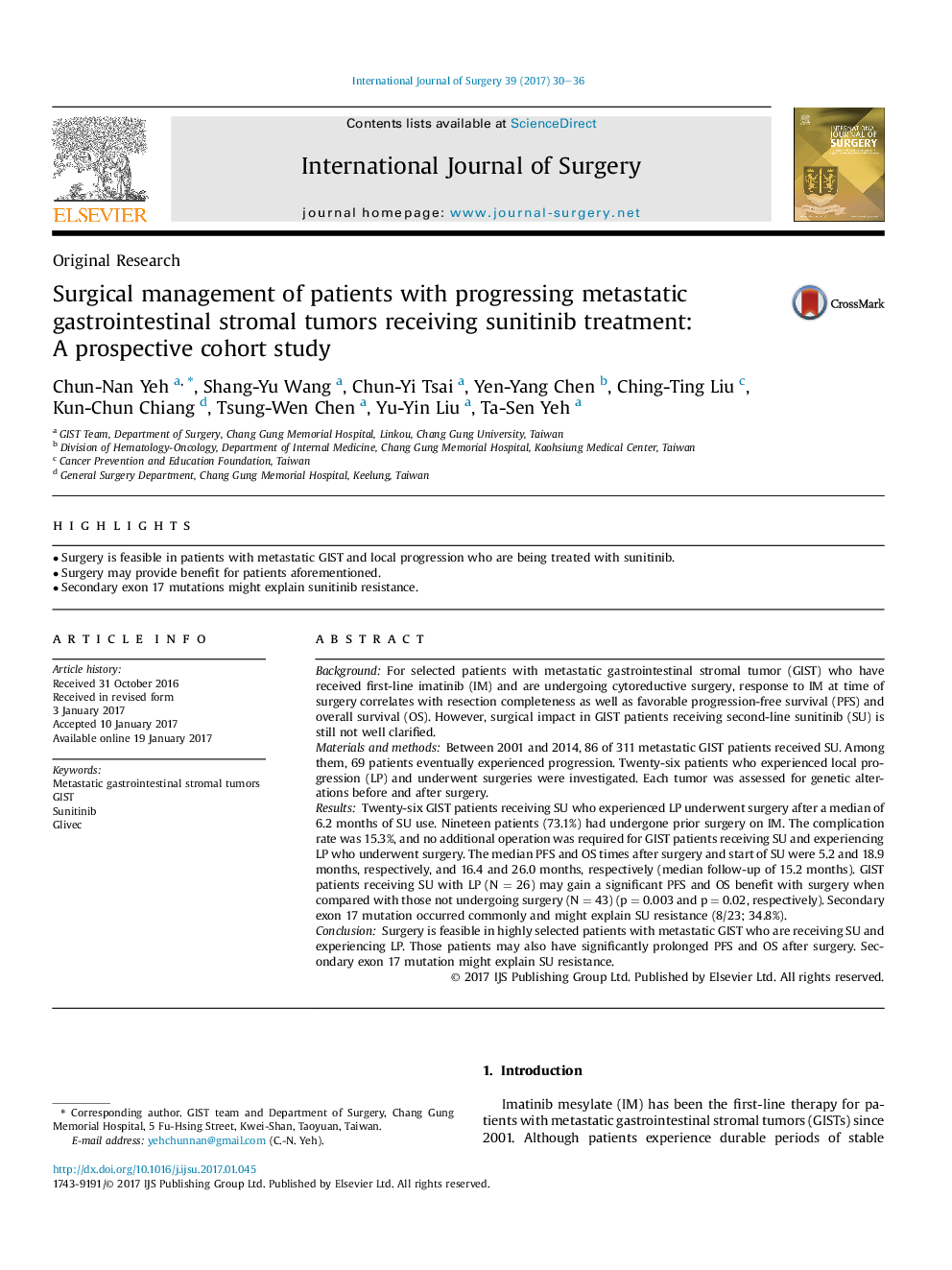| کد مقاله | کد نشریه | سال انتشار | مقاله انگلیسی | نسخه تمام متن |
|---|---|---|---|---|
| 5732096 | 1611940 | 2017 | 7 صفحه PDF | دانلود رایگان |

- Surgery is feasible in patients with metastatic GIST and local progression who are being treated with sunitinib.
- Surgery may provide benefit for patients aforementioned.
- Secondary exon 17 mutations might explain sunitinib resistance.
BackgroundFor selected patients with metastatic gastrointestinal stromal tumor (GIST) who have received first-line imatinib (IM) and are undergoing cytoreductive surgery, response to IM at time of surgery correlates with resection completeness as well as favorable progression-free survival (PFS) and overall survival (OS). However, surgical impact in GIST patients receiving second-line sunitinib (SU) is still not well clarified.Materials and methodsBetween 2001 and 2014, 86 of 311 metastatic GIST patients received SU. Among them, 69 patients eventually experienced progression. Twenty-six patients who experienced local progression (LP) and underwent surgeries were investigated. Each tumor was assessed for genetic alterations before and after surgery.ResultsTwenty-six GIST patients receiving SU who experienced LP underwent surgery after a median of 6.2 months of SU use. Nineteen patients (73.1%) had undergone prior surgery on IM. The complication rate was 15.3%, and no additional operation was required for GIST patients receiving SU and experiencing LP who underwent surgery. The median PFS and OS times after surgery and start of SU were 5.2 and 18.9 months, respectively, and 16.4 and 26.0 months, respectively (median follow-up of 15.2 months). GIST patients receiving SU with LP (N = 26) may gain a significant PFS and OS benefit with surgery when compared with those not undergoing surgery (N = 43) (p = 0.003 and p = 0.02, respectively). Secondary exon 17 mutation occurred commonly and might explain SU resistance (8/23; 34.8%).ConclusionSurgery is feasible in highly selected patients with metastatic GIST who are receiving SU and experiencing LP. Those patients may also have significantly prolonged PFS and OS after surgery. Secondary exon 17 mutation might explain SU resistance.
Journal: International Journal of Surgery - Volume 39, March 2017, Pages 30-36